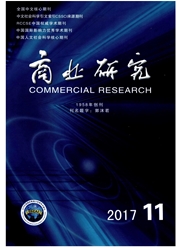

 中文摘要:
中文摘要:
本文从预期业绩的视角,以2009-2015年沪深两市上市公司为样本,基于薪酬-业绩敏感性分析和检验管理层权力对显性薪酬契约有效性的影响。研究发现,管理层权力越大,薪酬-业绩敏感性越高,与业绩无关的薪酬越低,但最终却导致显性薪酬总水平的提高;预期业绩上升时,管理层权力对薪酬契约施加的这种影响程度更高。说明管理层权力对显性薪酬契约的影响是出于"薪酬辩护"的自利行为。此外,对于不同性质的企业,地方国企的这种薪酬契约自利行为较民企更明显,而央企没有表现出明显的薪酬契约自利行为。上述影响薪酬契约有效性因素的认识,对于企业特别是国有控股企业制订更合理、有效薪酬激励契约具有启示意义。
 英文摘要:
英文摘要:
From the perspective of future performance,taking the listed firms in China in 2009-2015 as samples,this paper tests the effects of managerial power on the effectiveness of compensation contract based on pay-for-performance elasticity. The results show that managerial power raises pay-for-performance elasticity and lowers payment irrelevant to performance,while the final effect of managerial power is to raise management compensation; if future results seem better managerial power will enhance the effects on compensation contract,which means that managerial power's effects on compensation contract are for self-interest and compensation justification. Testing in sub-samples,this paper finds that local state-owned firms show higher such self-interested behavior than private firms,while there is no related evidence in central state-owned firms. The above understanding of the factors affecting the effectiveness of the remuneration contract,has implication for enterprises,especially state-owned enterprises to develop more reasonable and effective incentive contract incentive.
 同期刊论文项目
同期刊论文项目
 同项目期刊论文
同项目期刊论文
 期刊信息
期刊信息
